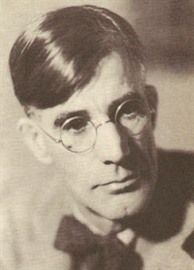Howard Spring facts for kids
Howard Spring (born February 10, 1889 – died May 3, 1965) was a writer and journalist from Wales. He started his career as a journalist. Later, from 1934, he wrote many popular books for both grown-ups and children. His most famous book was Fame Is the Spur (1940). It was even made into a movie and a BBC TV show.
Contents
About Howard Spring
Early Life and Education
Howard Spring was born in Cardiff. He was the son of a gardener. When he was 12, his father passed away. Howard had to leave school and start working as an errand boy.
He later became an office helper at a company in Cardiff Docks. Then he was a delivery boy at a newspaper called the South Wales Daily News. He really wanted to be a reporter. So, in his free time, he learned shorthand. He also took evening classes at Cardiff University. There he studied English, French, Latin, math, and history. He soon became a reporter for the South Wales Daily News.
Becoming a Journalist
In 1911, Howard joined the Yorkshire Observer newspaper. In 1915, he moved to the Manchester Guardian. But he was there only a few months. He was called to join the Royal Army Service Corps in the Army. He worked as a typist.
After the war, he went back to the Guardian. He worked as a reporter. His editor, C. P. Scott, thought Howard was a great reporter. He said Howard was very good at describing things. While working for the Guardian, Howard lived in Didsbury.
Moving to London and Writing Books
In 1931, Howard reported on a political meeting. Lord Beaverbrook was speaking. Lord Beaverbrook was very impressed by Howard's writing. Howard had called him "a pedlar of dreams." Lord Beaverbrook liked this description. He arranged for Howard to get a job at the Evening Standard in London. Howard became a book reviewer there. He found the job offer "irresistible" and it was a great success.
At the same time, Howard started writing his own books. His first book was Darkie and Co. (1932). It was a story for children. His first novel for adults was Shabby Tiger (1934). This book was set in Manchester. It was later made into a TV show in 1973. A follow-up novel, Rachel Rosing, came out in 1935.
His children's book Sampson's Circus (1936) was also very special. It was one of two books that almost won the first Carnegie Medal. This award is for the best children's book by a British writer.
Major Success and Later Life
Howard's first big success with adult books was My Son, My Son (1937). This book was very popular in America. It was made into a movie in 1940. The BBC also made it into a TV show in 1977. This book was translated into many languages.
In 1939, Howard moved to Mylor in Cornwall. He became a full-time writer. In 1940, his most famous book, Fame Is the Spur, was published. It tells the story of a political leader's journey to power. During World War II, he wrote two more novels: Hard Facts (1944) and Dunkerley's (1946).
In 1947, Howard and his wife moved to Falmouth. After the war, he published many more novels. These included There Is No Armour (1948) and The Houses in Between (1951). His last book was Winds of the Day (1964). Howard also wrote three books about his own life. They were later put together into one book called The Autobiography of Howard Spring.
Howard Spring was a very successful writer. He understood people well and was skilled at writing novels. He worked very carefully. Each morning, he would write a thousand words. He rarely changed his writings much.
Howard Spring passed away from a stroke. In 1967, his wife, Marion Spring, wrote a book about their life together. It was called Howard.
Books by Howard Spring
- Darkie And Co, (1932)
- Shabby Tiger, (1934)
- The World's Greatest Detective Stories, (1934)
- Rachel Rosing, (1935)
- Sampson's Circus, (1936)
- O Absalom (also known as My Son, My Son), (1938)
- Book Parade, (1938)
- Heaven Lies About Us, (1939)
- Fame Is the Spur, (1940)
- Tumbledown Dick: All People And No Plot, (1939)
- All They Like Sheep, (1940)
- In The Meantime, (1942)
- This War We Wage, (1942)
- Hard Facts, (1944)
- And Another Thing, (1946)
- Dunkerley's, (1946)
- There Is No Armour, (1948)
- Christmas Honeymoon, (1949)
- Christmas Awake, (1949)
- The Houses in Between, (1951)
- Jinny Morgan, (1952, play)
- A Sunset Touch, (1953)
- Three Plays, (1953)
- These Lovers Fled Away, (1955)
- Time and the Hour, (1957)
- All the Day Long, (1959)
- I Met a Lady, (1961)
- Winds of the Day, (1964)
 | Madam C. J. Walker |
 | Janet Emerson Bashen |
 | Annie Turnbo Malone |
 | Maggie L. Walker |


